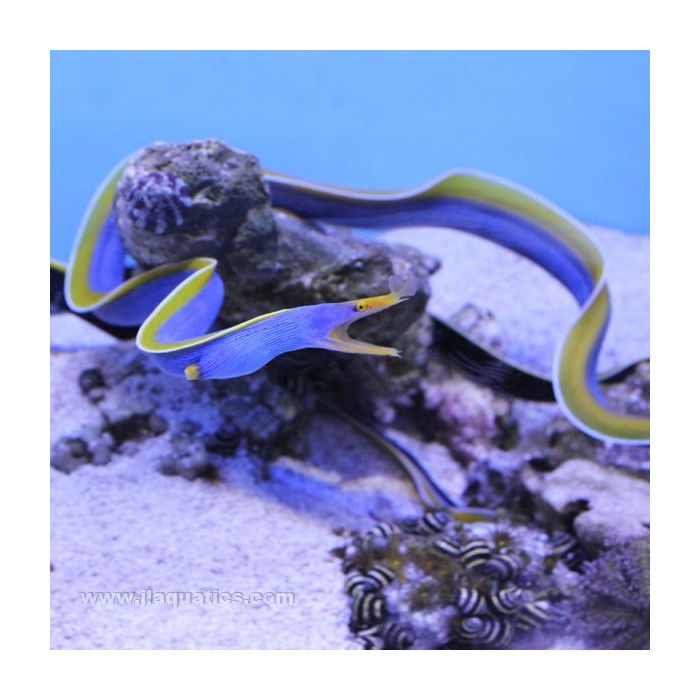Blue Ribbon Eel (Asia Pacific)
Ribbon eels are some of the most spectacular eels, but also the most difficult to feed. Initially they may require live food items of small fish and shrimp. Chromis, mollies, damsels, and peppermint shrimp are often used. In time the eel may be weaned onto frozen foods; however, some specimens may refuse all but live foods. We only recommend these eels for very experienced aquarists. Keeping the eel in a small aquarium of at least 30 gallons initially may make feeding easier, and the eel can be moved to a larger aquarium once it has adapted to captivity. Eels should be fed at least once every two or three days a high quality diet of krill, silversides and chopped seafood. Use of a feeding stick may be necessary. We never recommend using ones fingers to feed an eel as the eel may become excited and bite, which may lead to infection. Eel bites should be thoroughly washed and disinfected. They are heavy feeders and thus strong filtration is necessary.
The Ribbon eel is also known as the leaf nosed moray because of its hilarious oversized nostrils. Its thin body is brightly colored: juveniles are inky black with a lemon yellow dorsal fin. In males the black changes to bright blue, and females are mainly yellow all over. Males grow to 37 inches, females to 51 inche. The Ribbon eel should be kept in an aquarium of at least 75 gallons.
We recommend a tight fitting lid for all eel species. They are incredible escape artists, powerful enough to lift themselves out of the water and push on a lid or squeeze through small spaces. Care should also be taken when acclimating so the fish does not escape onto the floor.
Their aquarium should provide plenty of secure rockwork- larger species may topple unstable decor or dig under the sand. At least two caves should be provided for each eel, large enough it can fully hide itself when needed. When feeling secure most eels will poke their head out of their cave for the majority of the day. Eels are safe with all corals, sponges and macro algaes, to which they have no interest.
Extreme caution should be used if considering adding more than one eel to an aquarium as they may attack one another.
















